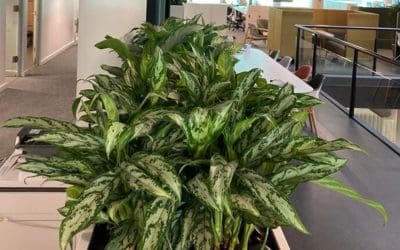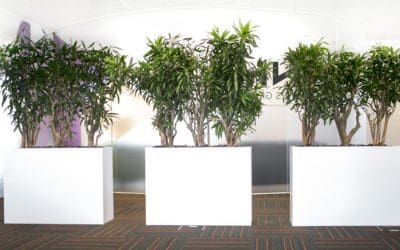When we heard that the theme for Plants at Work Week 2024 was ‘Plants to the Rescue’, we immediately thought of superheroes. Well, to be perfectly honest our first few thoughts centred on how we could dress Wade, the GTI office dog up as a Thunderbird, or have him posing wearing a cape ‘saving’ a kentia palm.
But then common sense prevailed, decorum took over and we considered the role of plants in medicine, and how even the humblest leaf, root, or herb literally saves the day, every minute of every day.
We have written extensively about the positive benefits of plants and greenery to our mental wellbeing, but did you know that around 11% of all drugs considered ‘basic’ by the World Health Organisation originated in flowering plants, and that many more come from plants without flowers?
We could, and will write a blog all about the astonishing properties of moss, used for thousands of years for its antiseptic properties, and then of course there are the myriad herbal remedies that have moved from ‘old wives tale’ status to mainstream adoption. Garlic, Arnica, St. John’s Wort, Elderflower, Chamomile, and Milk Thistle to name but a very few.
If you have ever taken Aspirin, say thanks to the bark of the willow tree, while for slightly stronger pain-relieving properties, it’s the Opium Poppy that gave us Morphine, and although most of the active ingredients are nowadays synthesised in laboratories, they were first identified in plants. In fact, there is a great deal of research that points towards the fact that when it comes to the health benefits of Aspirin, we have barely scratched the surface.
For any plant to be used in a prescription drug, it has first gone through years, decades even, of rigorous testing before approval, but we are finding new plants to test all the time, proving conclusively the value of trusting the plant world for inspiration.
It is a remarkable irony that Tobacco, for so long viewed as a massive health problem might now be about to help in the fight against strokes and heart disease. Tobacco is an inexpensive, high volume crop that is easy to genetically modify (easy if you are a genius scientist that is), and it’s these properties that make it an ideal, low cost candidate for becoming the new ‘wonder drug’.
Here’s a fact. Drugs derived from the Madagascar Periwinkle are used to treat childhood Leukaemia… talk about ‘Plants to the Rescue’.
Honestly, we could go on for days about plants and their amazing life-saving properties, but for now we will leave you with a personal favourite of ours, a plant that might not be considered beautiful by some, but one that should have a place in every home, and workplace.
Say hello to Aloe Vera.
This wonderful plant has a great many superhero credentials that most of you will already be aware of… but did you know that in an office environment, it can even clear the air of some chemicals associated with cleaning products!





